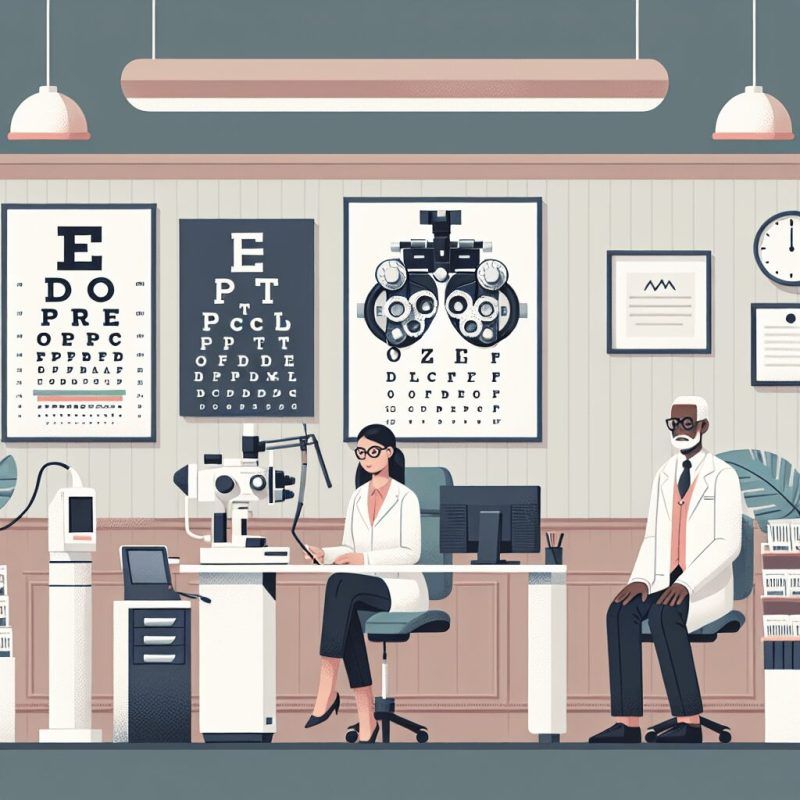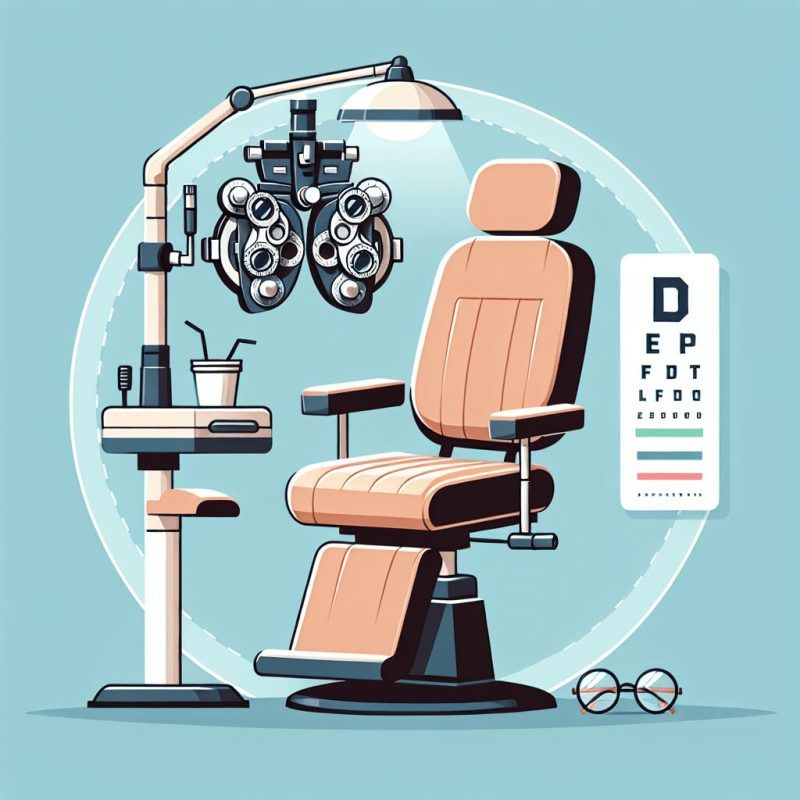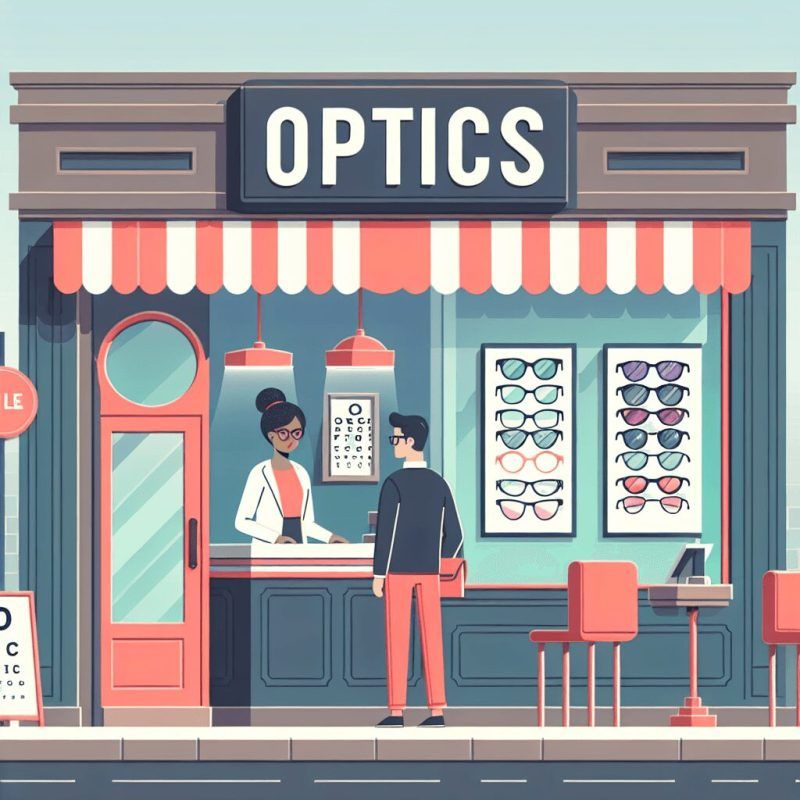Doctor's Corner
Managing Glaucoma and Diabetes: A Simple Guide
Managing glaucoma and diabetes is crucial, as these conditions can be complex. It is important to understand the early symptoms and take steps to prevent damage. This article provides insights into the link between these conditions. Taking charge of your health is essential. Learn how to protect your vision and explore the connection between diabetes and glaucoma for the sake of your eyesight and overall well-being.
Understanding the Relationship Between Glaucoma and Diabetes
Link Between Diabetes and Glaucoma
Common risk factors for diabetic eye diseases, like glaucoma, are:
-
Prolonged duration of diabetes
-
High blood sugar levels
-
High blood pressure
-
High cholesterol levels
-
Smoking habits
These factors can lead to diabetic retinopathy, which may cause vision loss and blindness in diabetic patients.
Untreated glaucoma in diabetic individuals can worsen existing eye issues, damaging the optic nerve and vision further. Research shows a strong connection between diabetes and glaucoma, putting diabetic patients at a higher risk of developing glaucoma.
Epidemiologic studies and meta-analyses stress the need for regular monitoring and proper management of both conditions to protect vision health and prevent complications.
How Diabetes Influences Eye Health
Diabetes can affect eye health, especially causing diabetic retinopathy. This condition damages blood vessels in the retina due to high blood sugar levels over time. It can lead to abnormal blood vessel growth, blocking fluid drainage, increasing eye pressure, and potentially causing glaucoma by damaging the optic nerve.
Moreover, diabetes raises the risk of cataracts by causing deposits to accumulate in the eye lenses. Individuals with diabetes can protect their eyes by getting regular eye exams , managing blood sugar effectively, leading a healthy lifestyle, controlling blood pressure and cholesterol, avoiding smoking, and staying physically active. Taking these steps early can prevent vision loss and complications from diabetes and related eye issues.
Managing Glaucoma and Diabetes
Importance of Regular Eye Exams
Regular eye exams are important for maintaining overall eye health. This is especially true for individuals with diabetes. Not getting regular eye exams can result in undetected eye conditions like glaucoma, diabetic retinopathy, and cataracts. These conditions can lead to permanent vision loss.
Early detection and prevention of eye diseases are crucial for diabetic patients. Regular eye exams enable eye doctors to monitor blood vessels in the retina and detect any abnormalities or signs of damage. Studies have shown a connection between diabetes and a higher risk of glaucoma. Therefore, regular eye exams are essential for diabetic individuals to identify and address any issues early on.
Through a comprehensive dilated eye exam , eye doctors can assess the health of the retina, optic nerve, and macula. This assessment is critical for detecting diabetic eye diseases such as diabetic macular edema or open-angle glaucoma.
Monitoring and controlling blood sugar levels are important in preventing further eye damage and reducing the risk of complications related to diabetes and eye diseases. Early detection of these conditions through regular eye exams allows for timely treatment interventions like laser treatment or medication. These interventions can prevent vision loss and promote overall eye health.
Glaucoma Diabetes Treatment Options
Individuals with both glaucoma and diabetes have different treatment options available to them:
-
Eye drops
-
Laser treatment
-
Surgery
Proper management of diabetes is key in preventing glaucoma. Controlling blood sugar levels and protecting blood vessels in the eye can help reduce the risk. Regular eye exams are vital for diabetic patients with glaucoma. Early detection through these exams allows for timely intervention to prevent vision loss. Monitoring and treatment play a crucial role in safeguarding the vision and overall health of individuals with diabetes.
Preventing Glaucoma in Diabetic Patients
Strategies to prevent glaucoma in diabetic patients:
-
Manage blood sugar levels effectively.
-
Attend regular eye exams for early glaucoma diagnosis.
-
Discuss family eye health history.
-
Maintain a moderate weight.
-
Control blood pressure.
-
Engage in physical activity.
-
Avoid smoking.
Diabetic patients can manage eye health by:
-
Understanding the link between diabetes and glaucoma.
-
Monitor and control blood sugar levels.
-
Adhere to prescribed treatments.
Regular eye exams are crucial in preventing and detecting glaucoma. They allow for:
-
Early detection and treatment.
-
Mitigating the risk of complications, like vision loss.
Studies show a connection between diabetes and eye conditions. This highlights the importance of:
-
Monitoring and controlling blood sugar levels.
-
Preventing adverse outcomes for overall health.
Risk Factors and Complications
Common Risk Factors for Diabetic Eye Diseases
Common risk factors for diabetic eye diseases include:
-
Prolonged duration of diabetes
-
High blood sugar levels
-
High blood pressure
-
High cholesterol
-
Smoking
These factors can significantly impact the likelihood of developing conditions such as:
-
Diabetic retinopathy
-
Cataracts
-
Glaucoma
Diabetes can lead to damage in the blood vessels of the retina, causing diabetic retinopathy. It can also contribute to abnormal blood vessel growth that blocks fluid drainage in the eye, increasing the risk of glaucoma.
Preventative measures to reduce the risk of diabetic eye disease include:
-
Attending regular eye exams
-
Maintaining a moderate weight
-
Controlling blood pressure
-
Engaging in physical activity
-
Avoiding smoking
-
Managing blood sugar levels through medication and diet adjustments
Early detection through eye exams, ongoing monitoring, effective medication, and lifestyle management are crucial in controlling the progression and impact of these conditions. Researchers are exploring the connection between diabetes and eye diseases to improve treatments and discover potential cures.
Complications of Untreated Glaucoma in Diabetic Patients
Untreated glaucoma in diabetic patients can lead to vision loss and blindness.
The damage to blood vessels in the retina caused by diabetes and glaucoma can result in diabetic retinopathy.
This condition can progress to diabetic macular edema, neovascular glaucoma, and retinal detachment without prompt treatment.
Scars may form in the eye, and blood vessels could bleed or worsen, increasing the risk of permanent vision loss.
Preventative measures include regular eye exams, controlling blood sugar, managing blood pressure and cholesterol, staying active, and avoiding smoking.
Research is ongoing to improve early detection and treatment for diabetes and glaucoma correlation.
Consulting with Healthcare Professionals
Importance of Seeking Early Treatment
Seeking early treatment for glaucoma and diabetes is important. Early treatment can prevent severe consequences like vision loss and blindness.
In the case of diabetes, delayed treatment can lead to diabetic retinopathy. This condition causes abnormal blood vessel growth and fluid blockage in the retina, affecting vision.
Studies have found a connection between diabetes and a higher risk of glaucoma. This highlights the importance of early intervention and regular eye exams for early detection.
Detecting issues like open-angle glaucoma, which progresses slowly and often without symptoms, through these exams is crucial. Early treatment, which can include medication, laser treatment, or surgery, can help prevent further damage to the optic nerve and preserve vision.
Proper management of blood sugar, cholesterol, and regular eye health monitoring can greatly improve patient outcomes for these conditions.
Researchers are studying the link between diabetes and glaucoma to improve treatment options and potentially find cures for these eye diseases.
Research on the Relationship Between Glaucoma and Diabetes
Recent research has found a link between diabetes and an increased risk of glaucoma, especially open-angle glaucoma.
Individuals with diabetes may develop diabetic retinopathy over time, leading to abnormal blood vessel growth in the retina.
This growth can block fluid drainage from the eye, raising eye pressure and potentially harming the optic nerve, a characteristic of glaucoma.
Regular eye check-ups are essential for early detection of diabetic retinopathy and glaucoma to prevent vision loss.
Treatment options like managing blood sugar levels, using eye drops to lower eye pressure, and laser treatments have been successful in controlling both conditions and lowering the risk of complications.
These findings stress the importance of monitoring and controlling blood sugar levels, sticking to medication, and having regular eye exams to manage diabetes and reduce the chances of vision problems and blindness.
FAQ
What is the relationship between glaucoma and diabetes?
People with diabetes have an increased risk of developing glaucoma. It is important for individuals with diabetes to receive regular eye exams to monitor for early signs of glaucoma and manage their condition effectively.
How can managing diabetes help prevent or control glaucoma?
Managing diabetes can help prevent or control glaucoma by maintaining stable blood sugar levels, which can reduce the risk of developing eye problems related to diabetes, including glaucoma. Regular eye exams and monitoring of blood sugar levels are essential.
What are the common symptoms of glaucoma and diabetes?
Common symptoms of glaucoma include tunnel vision, eye pain, blurred vision, and seeing halos around lights. Symptoms of diabetes include frequent urination, increased thirst, unexplained weight loss, and fatigue. It is important to seek medical attention if experiencing any of these symptoms.
What are some lifestyle changes that can help in managing both conditions?
Some lifestyle changes that can help in managing both conditions include regular exercise, following a balanced diet, managing stress levels through relaxation techniques such as meditation or yoga, and getting enough sleep each night.
How often should someone with glaucoma and diabetes see their healthcare provider for check-ups?
It is recommended that individuals with glaucoma and diabetes see their healthcare provider for check-ups at least every six months to monitor eye health and manage blood sugar levels effectively. Regular evaluations can help prevent complications and ensure proper management of both conditions.
Discover the path to confidently managing both glaucoma and diabetes. Schedule a consultation with our expert team at Superior Eye Care in The Woodlands or Quality Eye Care in Willowbrook, Texas, and take charge of your eye health.
The post Managing Glaucoma and Diabetes: A Simple Guide first appeared on Optometrist in Woodlands & Willowbrook TX.
Doctor's Corner





